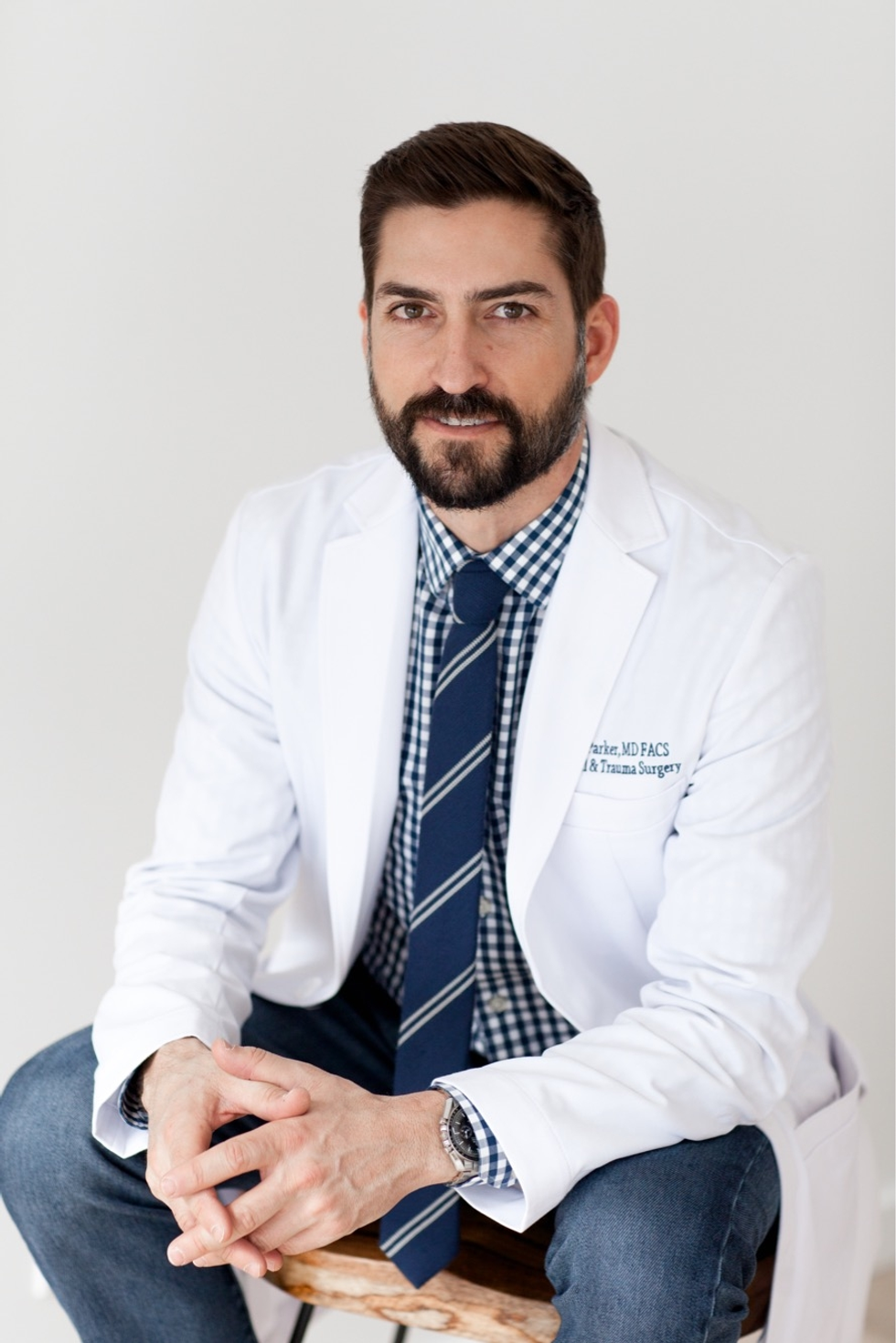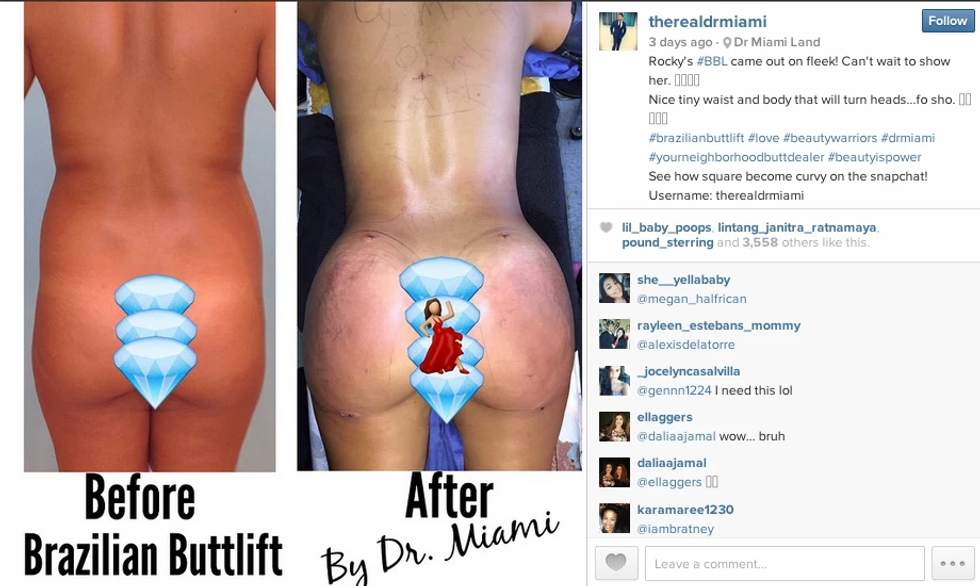Are you an inspiring surgeon? Are you obsessed with shows like Grey’s Anatomy and want to see what surgery is really like? Are you a medical student and want to explore different specialties? Are you a current surgical resident and want to gain the upper advantage and study actual surgeries instead of just reading about them in a book? Are you a future patient and have a surgery coming up and would like to know more about what your surgery will consist of? Then this article is for you!
I'm sure you have searched the internet looking for videos of actual surgeries and have either come up empty handed or found very little, outdated material. This mainly due to HIPAA. HIPAA is The Health Insurance Portability and Accountability Act of 1996 which was designed to provide privacy standards to protect patients' medical records and other health information provided to health plans, doctors, hospitals and other healthcare providers. Due to this law, many hospitals and doctors are hesitant to post videos of their groundbreaking surgeries. This leaves the advancement of medicine in a rut. This upsets many surgeons and leaves many to speak out in favor of videoing surgeries. For example, Dr. Buck, a famous surgeon on Youtube.
Dr. Buck Parker is a General & Trauma Surgeon at St. Mark’s Hospital in Salt Lake City Utah. Dr. Parker is from Jackson Wyoming and graduated from the University of Wyoming with a Bachelor of Science. He then went on to medical school in Belize at St. Matthew’s University School of Medicine. He spent 6 years in General Surgery training at Henry Ford Hospital in downtown Detroit, Michigan where he had extensive training in Trauma Surgery, Transplant Surgery, Cardiac Surgery, Emergency Abdominal Surgery, Vascular Surgery, Thoracic Surgery, Plastic Surgery, Colorectal Surgery, Endocrine Surgery, Surgical Oncology as well as Surgical Intensive Care. He also did a research fellowship in a joint program with Henry Ford and NASA studying diagnostic ultrasound and remote guidance in zero gravity environments. He has published several papers on these finding together with these institutions. While in Detroit he won multiple academic awards and was awarded the “Resident Teacher of the Year” from Wayne State Medical School in 2010.
In one of his Youtube videos, he exclaims the reason why he can’t record his surgeries and the importance of videoing surgeries in order to enhance medical education. According to Dr. Buck, HIPAA is:
“It’s so ridiculous… it was done to protect people… but it had ruined healthcare in the current day.” He then goes explain how we worked at various hospitals, typically around 100- 450-bed hospitals, and due to HIPAA, the healthcare industry is being blocked from evolving with technology and modern times. Every other industry is using technology, and other modern advances, in order to increase productivity and efficiency. For example, law enforcement officials with body cameras, or teachers with online learning. Healthcare has become stagnant, mainly because of HIPAA. HIPAA is a great program that is very essential in order to protect patients however, it has caused unintentional consequences.
Dr. Buck then begins to emphasize the despondence of him sitting in his car, teaching about surgery to undergraduate students, medical students, residents, and other people who are interested in surgery. He isn't allowed to go into the hospital and record valuable surgery and topics because everyone is scared of being violating the HIPAA laws. The hospitals continue to wrongfully continue the false stigma that recording while in the OR is illegal. Everyone is so scared of HIPAA that no one really knows what the laws.
They have so many amazing doctors and surgeons who do groundbreaking surgeries who are scared to go online because of HIPAA. He has been to hospitals where the surgeons and other doctors who are reinventing the wheel. There are inconsistencies between every hospital in the country due to the lack of effective communication between them. We are in 2018, where mass communication is at an all-time high; The internet can be the tool that can connect the healthcare industries.
Surgery education is in a “crisis’, where all of the older surgeons are constantly ridiculing younger, incoming surgeons for “not knowing anything”. The older surgeons ridicule the 80 hours weekly limiting, saying how 120 hours is essential to know the information. Technology is the answer, it’s video. When the residents can't be in the OR and can’t perform 100 laparotomies during their residencies, but if they can watch 100 laparotomies, and perform 40, then that makes up the difference and closes the educational gap.
A real example of how videos can improve a surgeon’s technique and education is when Dr.Buck was in his third year of residency. At first, he was reading many books on surgery, then this surgery fellow gave Dr.Buck a friendly piece of advice, and showed him how to “supercharge” his learning. The fellow then brings Dr.Buck a plastic bag full of DVD’s of surgical procedures, calling it “learning on steroids”. Some of the operations were operations that Dr.Buck have performed, and other were operations that he had never had the opportunity to perform.
For the surgeries he had already performed, he learned new techniques on how to perform them. You learn how to do surgery by watching another surgeon and then trying to perform their maneuver, you can not learn by reading books. If you see ten surgeons perform a surgery, they all do it differently. The learning surgeon has the opportunity to pick up pieces from each surgeon’s technique and apply it to their own practice. Just imagine if 1,000 surgeons put their surgeries online, then the learning surgeon has a plethora of techniques that they can learn from and make their own. A lot of surgery is recognizing deformities, and you can’t recognize it in a book, you have to see it.
For the surgeries Dr.Buck had never seen, he had learned how to do them from the video. For example, he had never done a particular surgery before, but he had watched the video. He went into the OR and did that operation for the first time, and the attendee surgeon has very impressed because he barely had to correct Dr.Buck on his technique. Compared to if he had never seen n operations before but he had read about, but after reading the book he still couldn't grasp the entirety of the surgery.
There are many surgeons who are taking to Snapchat in order to promote the growth of online surgeries. Including my personal favorite, Dr. Miami. Dr.Miami’s real name is Dr. Michael Salzhauer. Dr. Michael Salzhauer is a plastic surgeon in Miami Beach, Florida and is affiliated with Mount Sinai Medical Center. He received his medical degree from Washington University School of Medicine in St. Louis and has been in practice for more than 20 years. In an interview with VICE, here is what he said:
So you have a conversation with all of your patients where you say, like, "Hey can I Snapchat your operation?"
Oh, of course. All the patients that you see have signed consent forms for that, for social media. The majority of them want their face covered, or tattoos covered, but some of them are like, "No, I would like you to write my boyfriend's name on my back, and shout out to this person, and I would like you to play this type of music during the surgery..."
Wait, you actually get request for how to take Snapchats?
Absolutely. I mean, look, I'm 43. People of my generation would be horrified [of having their operation Snapchatted]. This would be shocking to them, because of how my generation views privacy and online security and all that. But kids today—and really, anyone under the age of 25 or 30—they see the world through a completely different lens. Not only is it not shocking to them, they're like, "Yeah, cool. Can you do that?"
Kids these days are so thirsty.
This generational thing—I can see it in my own practice. If a woman comes in and she's over the age of 40, I can tell you for sure, she's going to have trouble with Snapchat or having her pictures go up. But the younger generation, they're out there. You know what the difference is? They're not ashamed. They're not ashamed to talk about their bodies, or discuss their insecurities... I think it's a good thing.
Would you also say that the images you share on social media do a service in showing what the plastic surgery experience is really like?
Yes, exactly. That's what draws people to it—it's very genuine. I mean, you see the bruising. I tell you right there in the comments, "Yes, this looks like it hurts, because it does. This scar looks long, because it is a long scar. And yes, that scar will be there forever. And yes, she'll be out of work for two or three weeks." This stuff is not like getting your haircut. I don't sugarcoat it in any way. If you want to see how it's actually done, go onto the Snapchat, and you can see. I've got, on any given day, between 50,000 and 75,000 Snapchat viewers. And they're from all over the world.
Check out the rest of the article at the link above in order to get more of an insight into Dr.Miami’s practice. Dr.Miami is one of the doctors who sees that the world is evolving and is trying to make the medical healthcare industry evolve with it. Here are other doctors, like Dr.Miami, who are trying to make the industry advance. Be sure to add them on Snapchat and Instagram if you would like to get an inside view into their specialty and surgery!
| Physician | Specialty | Snapchat Handle |
| Dr. Scott Blyer | Cosmetic surgery | |
| Dr. Sandra Lee | Dermatology | |
| Dr. Parsa Mohebi | Hair restoration | |
| Dr. Cat Begovic | Plastic surgery | |
| Dr. Humberto Palladino | Plastic surgery | magicsurgeon |
| Dr. Lara Devgan | Plastic surgery | |
| Dr. Laxmeesh Mike Nayak | Plastic surgery | nosebynayak |
| Dr. Matthew Schulman | Plastic surgery | |
| Dr. Michael Salzhauer | Plastic surgery | |
| Dr. Otto Placik | Plastic surgery | |
| Dr. Robert Najera | Plastic surgery | |
| Dr. Sejal Patel | Plastic surgery | |
| Dr. Tarick Smiley | Plastic surgery | |
| Dr. John Skinner | Radiology | skyhawk4480r |
Everyone who believes that surgeons should be able to record surgeries with the expressed consent of the patients, please sign the petition below to help get the memo out for support. There’s no way that one person can do it alone, we need to stand together behind the cause in order to help the advancement of the healthcare industry. Sign Here!





















